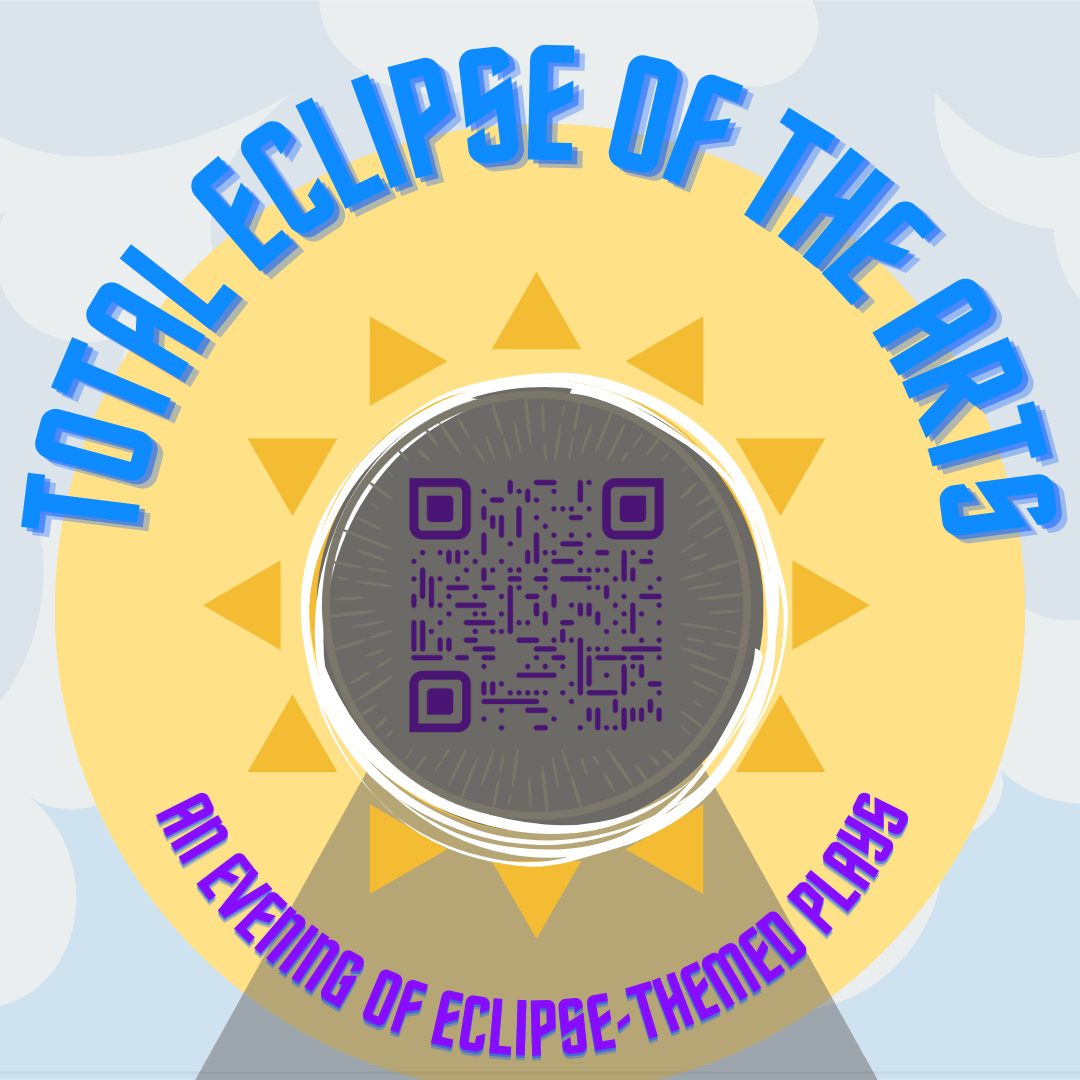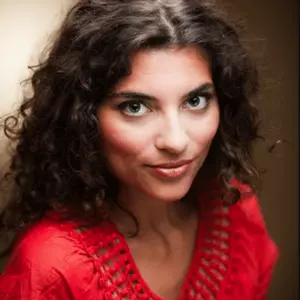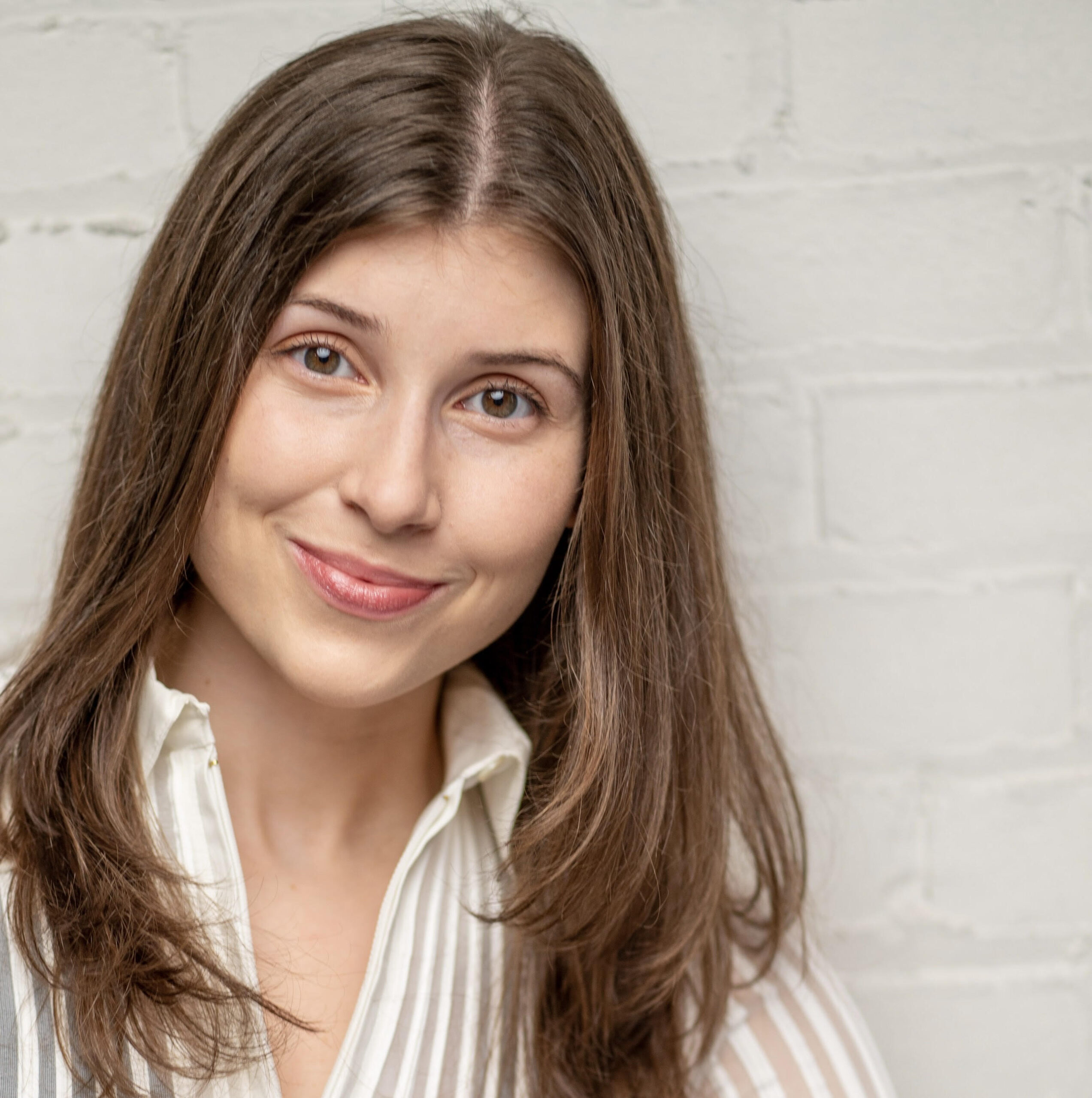‘Solar Eclipse of the Arts’: Merging Science and Theatre

The prompt: write a play about solar eclipses.
The students of Queen’s University (QU)’s DRAM 251 class were tasked with this in their 2023 fall semester. 24 plays were written as a result and seven have gone on to be dramaturged by the students of QU’s DRAM 339 class this 2024 winter semester. But the collaboration doesn’t end here. The seven plays will have staged readings tomorrow, March 25th, 2024 as part of an event presented by both the DAN School of Drama and Music and QU’s Department of Physics, Engineering Physics and Astronomy. This event, titled Total Eclipse of the Arts, is being held in anticipation of the total solar eclipse on April 8th, 2024. I recently had the opportunity to sit down with Dr. Sarah Waisvisz, professor of both DRAM 251 and DRAM 339, to ask her all my burning questions about this intensely cool project and collaboration.
This interview has been edited for length and clarity.
How did Total Eclipse of the Arts come to be? “Sarah Sadavoy in the physics department came to us—in drama—and said, ‘There’s going to be an eclipse, it would be cool to do something dramatic’… It seemed to me that writing about something that was happening to us, but human beings have experienced across time and space since—for a long time before we even knew how to record it—was a really phenomenal topic.”
Next came the prompt to Waisvisz’s DRAM 251 students and the project began rolling, all while keeping the physics department involved. “The playwriting students met with [Sadavoy] and she gave a short lecture on solar eclipses so that we could all learn what it was, and as class, they visited the observatory that is on Queen’s campus… Then those seven students [in my dramaturgy class] also visited the observatory, have been researching and learning about eclipses, have now met Sarah Sadavoy as well as a few other researchers, and they’re the ones who are going to present the shows.”
Speaking of the shows, who is involved in the play readings? “[Students of DRAM 339 and I] decided to do readings because we didn’t have the capacity to do a fully staged production—I would have had to choose just one play and I wanted to showcase as many works as I could. Already doing seven is a sad number from 24 but we chose seven. And I put out a call for actors—volunteer actors—and the call went out to the drama department and the music department, and to the physics department. So we have six actors. Two of them are from physics and four of them are from drama, which is a beautiful combination.”
I was growing more and more fascinated by this amazing collaboration. In addition to bringing actors onboard, have the playwrights remained involved? “All playwrights have been asked to make adjustments and changes based on feedback from the dramaturgs. Some scripts went through longer, more intense adjustments than others, sometimes due to length, sometimes due to, the plays were chosen for XYZ reason but maybe needed some tweaks in order to be presented in a clear way because a play is never written for a staged reading. So we’re asking it to do something that maybe wasn’t the intention.”

And with the topic of solar eclipse, I can only imagine the creative ways in which students have run with this idea. I asked Waisvisz to speak about the vastness of the 24 shows created in her playwriting class. “The genres and styles could be totally, totally different. There were several plays that were kind of in the fantasy genre. There were a few plays that were almost like historical dramas, like there was witch trial play, for example… There were several plays in which the moon, the sun, and sometimes the earth, and sometimes stars were physical presences onstage… There was one play that was essentially like a spin-off of an episode of Coronation Street… Several of the plays featured the eclipse itself happening… Several of the plays were seemingly realistic situations like relationships between friends or [couples] or family members, and the eclipse was more a metaphor.”
Speaking about one specific play that will be presented Monday evening, Waisvisz described how the playwright drew directly from Sadavoy’s lecture and readings they did on their own. “It is set in the location of the first recorded eclipse in, kind of, modern-esque days and people don’t know what’s happening… We learned that ancient communities experienced eclipses and didn’t necessarily have the scientific knowledge about why they were happening. So there were all sorts of fears about what it meant.”
I began wishing I could read all these plays Waisvisz was describing and was wondering how she went about choosing seven plays from a wonderful 24. It began by asking the playwriting class if they wanted their works considered for the winter semester project. “That whittled down my list by half, so at 12 submissions. And then in the dramaturgy class, I think we spent two to three classes reading them all out loud… And then the students chose which ones they wanted to work on.”
What was that process of choosing like? “We had very fulsome discussions after each script and the discussions were all very rich and very vast. People had very insightful comments. Like, ‘I think this one is wonderful but I don’t know how it would read as a staged reading.’ And then later on, they might have chosen that play, actually. Because even just having that conversation—‘I don’t know how I would do this’—is actually really generative. So nothing was cut out of hand.”
With the discussions came reflections and students were eventually asked to pick their top three. “And then I made a chart to see if anybody had the same choice and then we chose our seven because there are seven dramaturgs—who have been dramaturgs but also become directors because they are the ones who are initially actually putting a vision of the play forward.”
Waisvisz not only believes in the importance of her students showcasing their artistic works but she sincerely believes in the effort to learn about other topics as they develop them. “We should know more about the natural world, we should know more about space. We should know more about our place in history and how, as humans, we interact with the natural world, right? And with these experiences that have shaped humanity across time. These are the things that unite us as people in a time when there’s a lot that divides us. Ancient peoples, no matter where they were, looked up at the sky and tried to understand what was happening, tried to understand their place in the universe.”
Find more details about the free event,‘Total Eclipse of the Arts’, at Convocation Hall on Monday, March 25th, 2024 here.
Find information about Sarah Waisvisz here. Waisvisz thanked her teaching assistant in both DRAM 251 and DRAM 339, Mariah (Mo) Horner, during our interview for all her help. More information about Horner can be found here. Find information about Sarah Sadavoy here.
